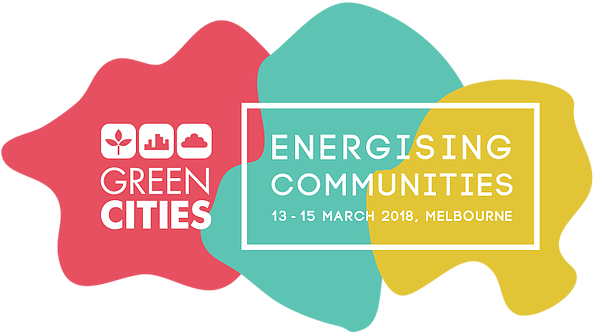
Green Cities Conference 2018
Last week I was fortunate enough to attend the Green Cities Conference, organised by the Property Council of Australia and Green Building Council of Australia. The theme of the conference was sustainability in the property industry, with a specific focus on ‘energising communities’.
I thought I’d share with you some of the interesting things I learnt at the conference.
Here are some of the things that resonated with me:
Sustainability (in terms of environmental, social and governmental factors) should be incorporated in decisions made by corporations and individuals, and should also be incorporated into company strategies.
The Australian Government will shortly introduce a modern slavery act which will require corporations to: map out their supply chain; do their due diligence to identify anything classified as slavery in the supply chain; and use this as a Mea culpa i.e. admit where there is slavery and rectify it.
There was much talk of smart cities (i.e. technology driven cities), how humans fit into the smart city, and how transport fits into a smart city. One conference attendee said that in the UAE buildings are being designed to accommodate air pods (https://zeropollutionmotors.us/), should we be doing the same in Australia?
There was a session about campaigning and messaging (specifically about sustainability), led by the campaign manager for the Labour Kevin07 Prime Ministerial campaign and the marriage equality campaign, which I found really interesting, some of the main take outs were:
- Just because you believe in something, it doesn’t mean that others do
- Every winning campaign connects with the hearts rather than with the minds
- Tailor each campaign specific platform/target market
- Don’t use too much jargon as it dilutes the message
- The term sustainability is being overused and losing its meaning
- Never forget the power of well researched, well thought out ideas that connect with
people
There was a session about how the big developers (Mirvac and Lendlease) are looking to invest in build-to-rent properties in Australia (as opposed to the traditional build-to-sell model), which they claim will have numerous benefits for renters because there will be guaranteed rental stock and renters will now be the client so they will be cared for. Developers are interested in this because it will give them guaranteed income. However there currently isn’t legislation in Australia which supports this. In fact draft federal legislation has been written (but not yet tabled at parliament) which would effectively ban build-to-rent properties.
A session about nature in cities reflected that Urban Heat Island effect (UHI), which is the increased temperatures experienced in cities due to the non-porous/dark surfaces in cities is the number one environmental effect that kills people in cities. There is a disconnect growing between people who live in cities and nature, and the concern is, how can people who are completely disconnected from nature make decisions about sustainability & climate change.
The consultancy The Nature Conservancy is currently working with all 32 local Councils in metropolitan Melbourne to map Melbourne’s urban forestry.
There were a couple of sessions about workplace culture and the qualities of a good workplace.
Positive workplace culture means: a safe workplace, meaningful work, a positive workplace environment.
A good workplace that promotes wellness should have minimum 5-6 of the following elements: Views of nature, natural light, plants, natural timber surfaces, water feature. Just one pot plant isn’t enough.
Literature around hot-desking says that it is not good for employee productivity nor mental health.
A good job means it has been designed well: with variability of tasks, adequate but not onerous physical & mental demands, flexibility, safety.
Studies have shown that the positive emotional impacts of a raise will last on average for 3 months, however the positive emotional impacts of a well-designed job will always be felt. i.e. a raise doesn’t compensate for a poorly designed job.
If you notice that someone’s behaviour at work has changed detrimentally ask why, it can be as simple as saying “Hey, I’ve noticed this thing (whatever has changed), I’m feeling quite helpless but I’m here to help”
There were some very interesting ideas tabled for how we can tackle climate change to meet the requirements of the Paris Agreement in the property industry (FYI we need to meet the objectives of the Paris Agreement in the next three years if we’re going to achieve the goal of not raising the global temperature more than 2 degrees)
- Reduce the reliance on cars in our cities
- Increase densities
- Increase public transport capacity
But how will we make this work?
Public opposition is holding us back, planning needs to be depoliticised as politicisation affects sustainability and liveability.
The following steps were suggested to achieve the above with a quick turnaround:
- Remove planning from local government and have one state-led planning agency
- Remove the power of third party complainants
- Genuinely engage our communities
- Set minimum housing density targets governed by proximity to transport
- Reduce car ownership by reducing car parking spaces
- Change funding structure for public infrastructure
- Set new energy targets for houses
I was very fortunate to have listened to key speakers including Anthony Albanese, Josh Frydenburg, Lily D’Ambrosio and Mark Butler. Each brought a new and refreshing perspective to the event and I am looking forward to following along their paths to sustainability.
Well done if you’ve made it to the end! The Green Cities Conference this year was really inspiring and I hope that we can all work together to achieve sustainability goals in the property industry!
- By Adelaide Webster
